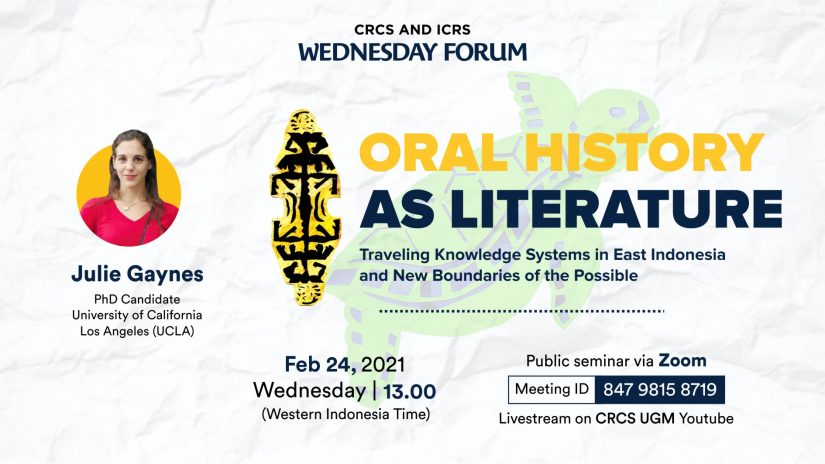
Oral History as Literature: Traveling Knowledge Systems in East Indonesia and New Boundaries of the Possible
Wednesday Forum – 24 February 2021
This talk will explore how relations between human healers and non-human persons (such as leluhur or ancestral souls and nitung or nature/guardian spirits) in the Lamaholot region of Nusa Tenggara Timur demonstrate sophisticated understandings of health beyond biomedical definitions. In 2009, the government of Lembata, an island in Nusa Tenggara Timur, passed a law which prohibited all unlicensed traditional healers from providing ingestible or prescriptive treatment in any capacity. The legal discernment of 2009 between institutionalized health systems and traditional healers diminished public views on epistemologies previously upheld for centuries. Building on a five-month study in 2018 which expanded my connections with healers on the island of Lembata, in 2019 I conducted an additional month-long oral history collaboration with local healers and laypeople, exploring how local healing practices inform historic identity and psycho-social well-being.
___________
Julie Gaynes researches healing relationships between human and non-human persons/spirits in the Solor Archipelago of East Indonesia. Her training in religious studies, creative writing, dance-acrobatics, and visual art prompts her to explore co-authored mixed-media storytelling as a means for transitioning local/geographically-situated knowledge systems across time and space. A former Shansi Fellow who taught English at CRCS from 2013-2015, she now pursues her PhD in Culture and Performance at UCLA.
Look at the full poster of this event here.

